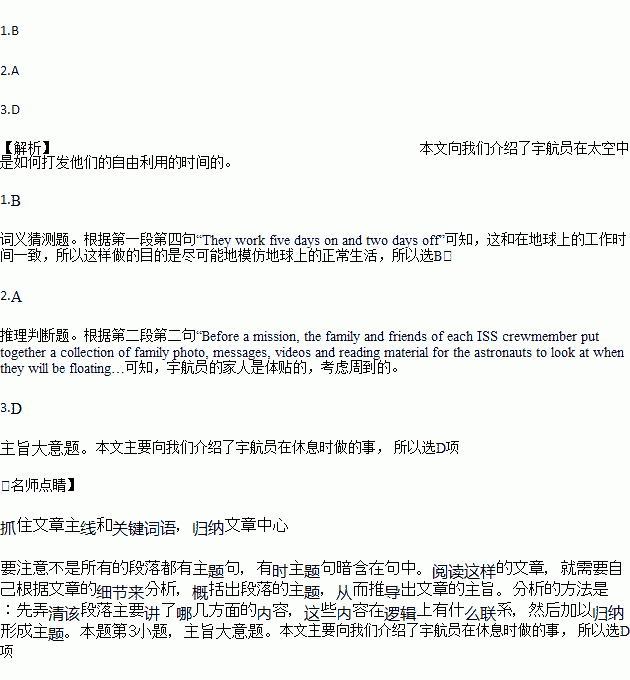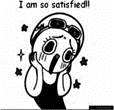题目内容
Astronauts on shorter shuttle missions(使命)often work very long days. Tasks are scheduled so tightly that break times are often used to finish the day’s work. This type of schedule is far too demanding for long missions on the International Space Station(ISS). ISS crewmembers usually live in space for at least a quarter of a year. They work five days on and two days off to mimic the normal way they do things on Earth as much as possible. Weekends give the crew valuable. Weekends give the crew valuable time to rest and do a few hours of housework. They can communicate with family and friends by email, internet phone and through private video conferences.
While astronauts cannot go to a baseball game or a movie in orbit, there are many familiar activities that they can still enjoy. Before a mission. The family and friends of each ISS crewmember put together a collection of family photos, messages, videos and reading material for the astronauts to look at when they will be floating 370 kilometers above the Earth. During their mission, the crew also receives care packages with CDs, books, magazines, photos and letters. And as from early 2010, the internet became available on the ISS , giving astronauts the chance to do some “web surfing(冲浪)”in their personal time. Besides relaxing with these more common entertainments, astronauts can simply enjoy the experience of living in space.
Many astronauts say that one of the most relaxing things to do in space is to look out the window and stare at the universe and the Earth’s vast land mass and oceans.
1.What does the word “mimic” in Paragraph 1 probably mean?
A. Find B. Copy
C. Change D. Lose
2.Which of the following best describes the families of the astronauts on the ISS?
A. The are caring and thoughtful
B. The are worried and upset
C. The are impatient and annoyed.
D. The are excited and curious.
3.The passage mainly discusses how astronauts ______________.
A. work for longer missions in space
B. connect with people on the Earth
C. observe the Earth from space
D. spend their free time in space



 e them.
e them. nts before using tanning beds or limiting the use of artificial tanning to a certain age.“Given the absence of any demonstrated benefits,I think it is an obligation for us to ban artificial tanning for those under 18,”said panelist Dr.Michael Olding.
nts before using tanning beds or limiting the use of artificial tanning to a certain age.“Given the absence of any demonstrated benefits,I think it is an obligation for us to ban artificial tanning for those under 18,”said panelist Dr.Michael Olding.